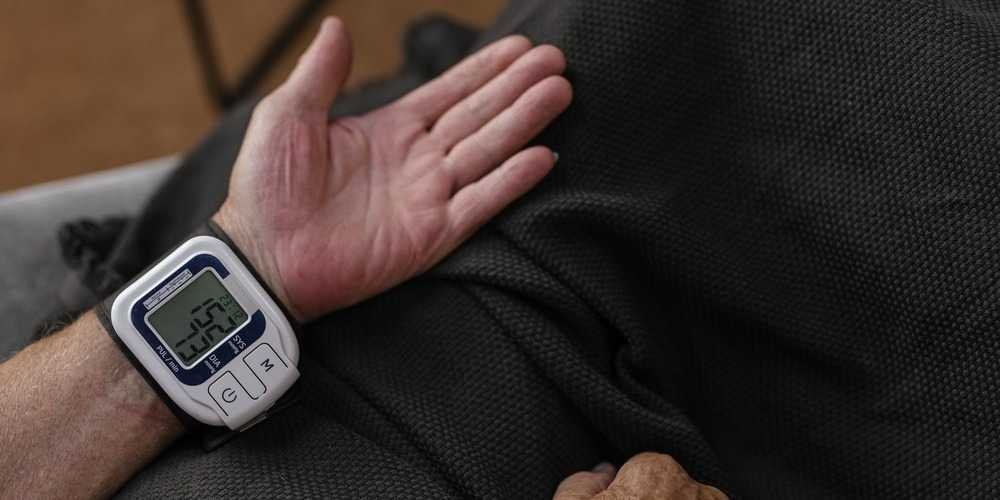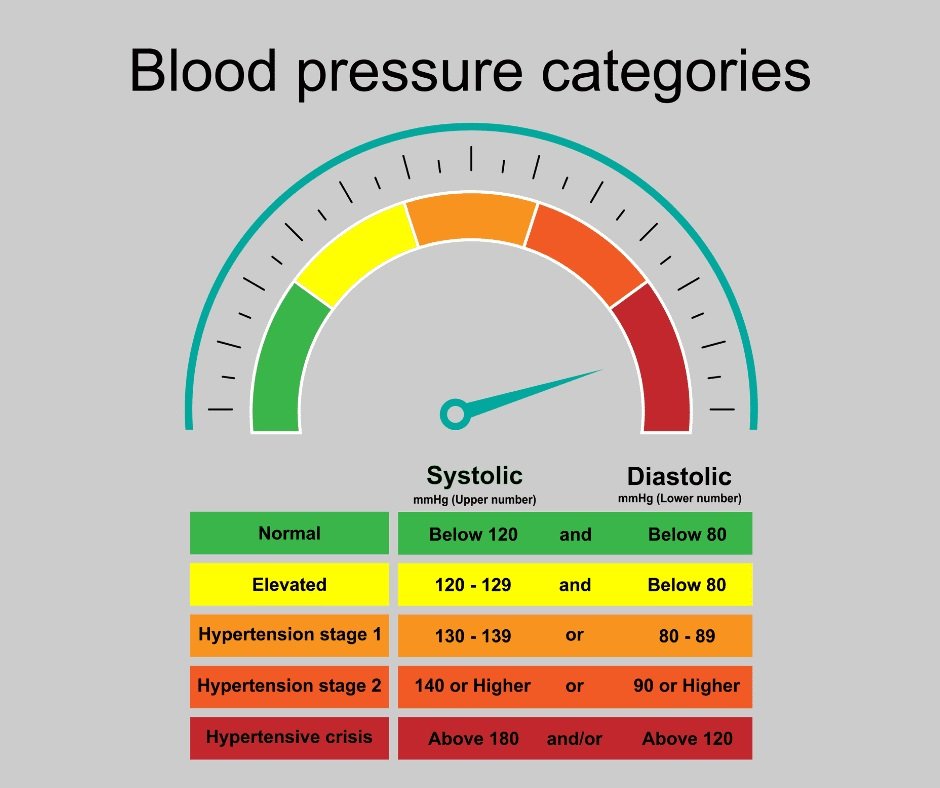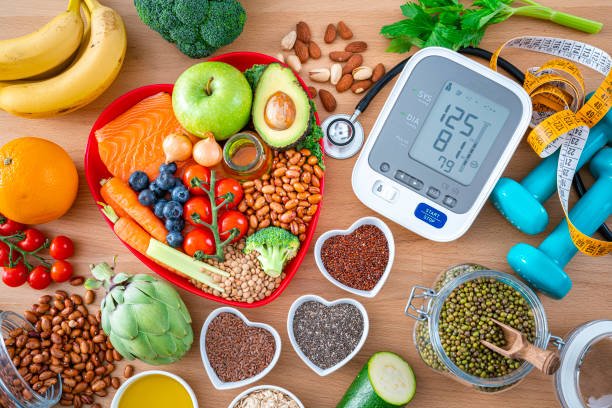
Can You Drink Coffee if You Have High Blood Pressure? Does High Blood Pressure Cause Headaches? 4 Major Myths About High Blood Pressure Debunked
In the UK, high blood pressure is the third biggest risk factor for all disease after smoking and poor diet. Around one in three adults in the UK has high blood pressure. In England, 31% of men and 26% of women have high blood pressure. Half of people with high blood pressure are not diagnosed or receiving treatment. In England alone, there are more than five million people that are undiagnosed.
The uncomfortable symptoms caused by high blood pressure are often ignored, such as headaches and dizziness, which also make people worry. Is high blood pressure the root cause of headaches? Nervous and busy office workers are at high risk of hypertension, so what are the dangers of hypertension? This article summarizes all the myths about high blood pressure for you!
Why does high blood pressure occur?
Hypertension can be divided into primary hypertension and secondary hypertension. Most hypertension belongs to primary hypertension. The cause of primary hypertension is relatively unknown and may be related to heredity, overweight, and salt intake. It is related to excess, stress, lack of exercise, etc. Secondary hypertension can usually find the causes of elevated blood pressure, such as endocrine abnormalities, kidney disease, congenital arterial and vascular disease, and taking drugs that affect elevated blood pressure.
According to the latest guidelines for the treatment of hypertension set by the NHS, the blood pressure range of prehypertension is systolic blood pressure 120~129mmHg, and when the systolic blood pressure exceeds 130~139 mmHg and the diastolic blood pressure exceeds 80~89 mmHg, it is the first stage. hypertension.

The American Heart Association (AHA) released the latest treatment guidelines on hypertension standard values in 2017, redefining blood pressure as systolic blood pressure of 130 mmHg or diastolic blood pressure of 80 mmHg or above as hypertension. This is the first time that the U.S. medical community has updated its guidelines on blood pressure testing and treatment since 2003. The previous definition of high blood pressure was 140/90mmHg or above. Currently, the definition of hypertension by the WHO and the Heart Society of the Republic of China remains at 140/90mmHg. You can pay more attention to whether the American Heart Association will revise the high blood pressure standards in the future.
Since high blood pressure usually has no symptoms, patients may not feel uncomfortable even if their blood pressure is abnormal, so treatment is often ignored and delayed. A small number of patients with high blood pressure may experience dizziness, headache, tinnitus, palpitations, and in severe cases, vomiting, coma and other symptoms.
Most patients can control their blood pressure within the normal range by changing their lifestyle and eating habits. However, if they cannot effectively control their blood pressure through the above methods, they need to consider taking antihypertensive drugs.

1. Can high blood pressure cause headaches?
In fact, high blood pressure can indeed cause headaches, but it must be above 180mmHg. Headache is actually just a symptom, and there may be many different causes behind it. It can be mainly divided into primary headaches and secondary headaches.
Primary headaches include the following types:
- Cluster headaches
- Migraine
- New daily persistent headaches
- Tension headaches
Secondary headaches may be associated with the following symptoms:
- Head injury
- Brain infections, including encephalitis, brain abscess, etc.
- Hydrocephalus
- High blood pressure
- Substance abuse
- Sinus congestion
- Brain tumor

2.Can people with high blood pressure drink coffee?
One of the main components in coffee is caffeine. According to the literature, the average adult consumes 3 to 5 cups of black coffee per day (about 235 ml per cup), and the daily caffeine intake is recommended not to exceed 400 mg.
Ingesting an appropriate amount of caffeine can not only improve cognitive ability, reduce the risk of depression and Parkinson’s disease, but also reduce the risk of liver cirrhosis, liver cancer and endometrial cancer; however, caffeine is harmful to the cardiovascular system and central nervous system. A stimulant that may increase blood pressure in a short period of time. Patients with high blood pressure, or cardiovascular diseases such as stroke, heart disease, angina, and myocardial infarction should avoid excessive intake of coffee or caffeine-containing beverages. drinks.

3.Can I donate blood if I have high blood pressure?
Donating blood can promote the metabolism of red blood cells. On average, a red blood cell can live for 120 days. Old red blood cells are eaten up in the liver or spleen, and the heme is decomposed into iron for reuse.
Research has found that after blood donation, bone marrow stem cells are briefly stimulated, which will accelerate hematopoiesis. The donated blood is old or new. The human body can replenish the donated blood within an average of 2 months. At this time, the proportion of young red blood cells in the whole blood will decrease. Increase, because young red blood cells flow faster and have flatter cell membranes, which can reduce adverse reactions on the vascular endothelium.
However, not everyone can donate blood. If the blood donor has high blood pressure and the blood pressure is not well controlled, the doctor has changed the blood pressure medicine or dosage in a short period of time, or has complications of high blood pressure, such as heart failure, kidney failure, myocardial failure, etc. Problems such as infarction are not suitable for blood donation.

4.Can you drink alcohol if you have high blood pressure?
For people with high blood pressure, drinking alcohol may make high blood pressure medicine less effective. In addition, to avoid rising blood pressure, daily drinking should not exceed 30 grams of alcohol (about 50% spirits 60c.c. or red wine 150~200c.c.)
According to the National Dietary Indicators Manual, generally men should not drink more than one can of beer a day, and women should not drink more than half a can of beer. If a woman is preparing to become pregnant, is pregnant, or is breastfeeding, she must avoid drinking alcohol for the health of her fetus.













